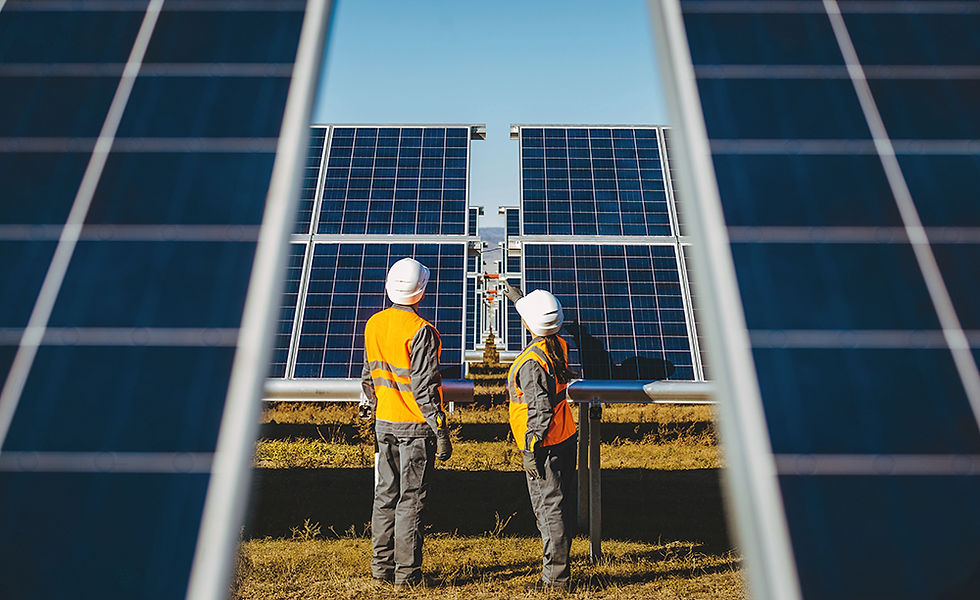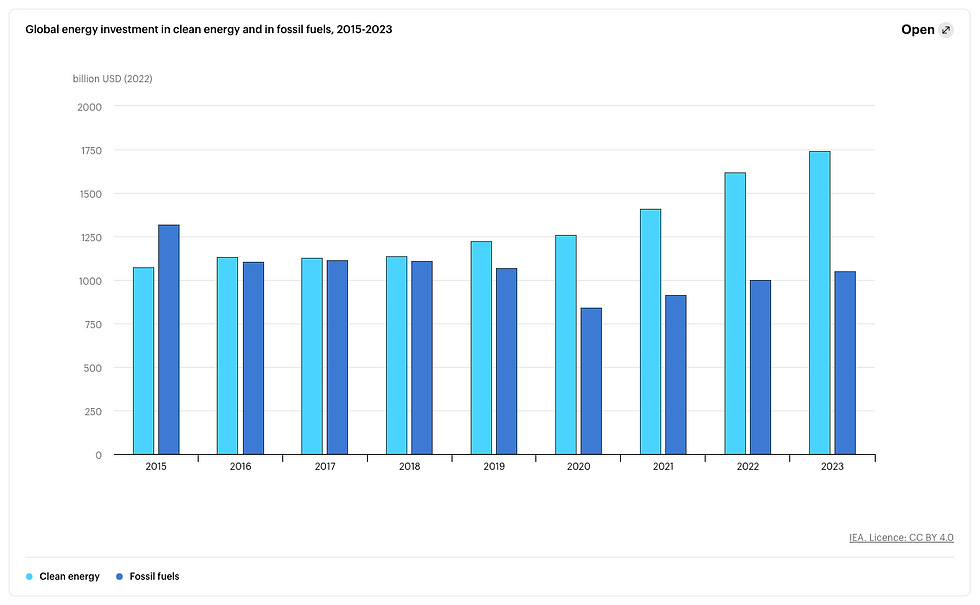Solar Energy Set to Attract More Capital than Oil Production: A Glimpse into Nigeria's Role
- Jonny Appleton
- Jan 10, 2024
- 3 min read
2024 is poised to witness a significant milestone: solar energy investments are projected to surpass those in oil production.
With the first evidence of clean energy investment exceeding that of fossil fuels started in 2023, the transition signals a global acknowledgment of renewable energy's potential and the evolving economic landscape. While this trend reverberates worldwide, Nigeria, a significant player in the oil market, offers a compelling case study for this seismic shift.

The global surge
With fossil fuel prices down from their 2022 peaks, markets remain tense and volatile. Continued fighting in Ukraine, more than a year after Russia’s invasion, is met with rising tensions in the Middle East. The macro-economic mood is downbeat, with stubborn inflation, higher borrowing costs and elevated debt levels. According to the International Energy Agency (IEA) investment in clean energy has risen by 40% since 2020. They estimate that around USD 2.8 trillion was invested in energy in 2023. That equates to more than USD 1.7 trillion going to clean energy and the remainder, slightly over USD 1 trillion, going to unabated fossil fuel supply and power, of which around 15% is to coal and the rest to oil and gas.

The International Renewable Energy Agency (IRENA), reported investments in solar energy projects particularly are expected to reach unprecedented levels in 2024. This surge is fueled by declining solar panel costs, improved efficiency, and government incentives. As a result, capital that once flowed unabated into oil exploration and production is now diversifying toward solar initiatives. Find out more here.
Nigeria has the highest population in Africa and investments in renewables are quickly gaining traction. With the global scenario shifting, economies like Nigeria are using solar energy to improve living conditions and support it in growing its influence as a leading economy in Africa.
Nigeria: From Oil Dominance to Solar Potential
Historically, Nigeria has been synonymous with oil production, boasting vast reserves and a robust export infrastructure. The nation's economy, heavily reliant on oil revenues, experienced the highs and lows of the volatile oil market. However, as the global energy landscape evolves, Nigeria stands at a crossroads, presented with an opportunity to diversify its energy portfolio. Find out more here.
Nigeria's abundant sunlight and vast land resources position it favorably for solar energy expansion. Recognizing this potential, the Nigerian government, in collaboration with international agencies, has initiated solar projects aimed at harnessing this renewable resource. Investments in solar farms, rooftop installations, and solar-powered initiatives are gaining traction, signaling a strategic shift.
Furthermore, the economic implications of this transition cannot be overstated. While oil revenues remain pivotal, the influx of capital into solar energy promises job creation, technological advancements, and sustainable growth. Additionally, addressing Nigeria's energy needs through solar initiatives fosters energy security, reduces import dependency, and mitigates environmental concerns.
Challenges and Opportunities
Despite the promising trajectory, Nigeria's transition to solar energy is not without challenges. Infrastructural constraints, regulatory frameworks, and investment barriers necessitate concerted efforts from stakeholders. However, these challenges present opportunities for innovation, collaboration, and strategic partnerships.
International organizations, private sector entities, and local stakeholders can collaborate to overcome barriers and unlock Nigeria's solar potential. By fostering an enabling environment, streamlining regulations, and incentivizing investments, Nigeria can catalyze its solar energy transition, aligning with global trends and reaping economic benefits.
Conclusion
As 2024 unfolds, the solar energy sector's ascendancy over oil production heralds a new era in the global energy landscape. Nigeria, endowed with abundant solar resources, stands poised to capitalize on this transition. By embracing solar energy, diversifying its energy portfolio, and leveraging international partnerships, Nigeria can navigate the evolving energy paradigm, fostering sustainable growth and prosperity.